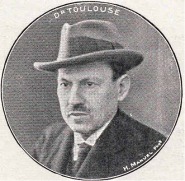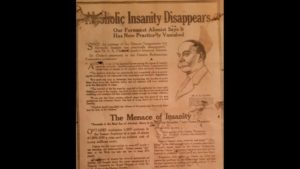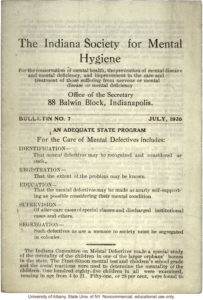
Dr. Edouard Toulouse
Today’s newspapers very seldom discuss the actual causes of mental illness, but experts in the past were much more confident about their ability to dig out the reasons behind a patient’s problems. In 1922, The Washington Post ran an article in which a Professor Edouard Toulouse stated that there were three primary causes of madness: sorrow, thyroid deficiency, and vice.
Upon checking into his clinic, patients were interviewed, then given a physical exam to see whether they were born “with an excess of thyroid matter” or whether they had become addicts to vice, which included drugs. The good news was that Toulouse believed patients could be cured no matter how their madness originated.

Vice Was Considered A Cause of Insanity
Sorrow, of course, had many origins, but Dr. Toulouse particularly spoke about the difficulty of curing a patient whose sorrow derived from loss of wealth. He said that “practically the only sedative for a person who has once been wealthy and who finds himself suddenly poverty-stricken is to provide him again with wealth.” This course was often impossible, but diversion and time could be effective in healing.
Though Toulouse may have over-simplified the causes and treatments of insanity, his views gave patients’ families great hope. Toulouse firmly believed that nearly all cases of madness could be cured, which had to be comforting to a patient’s loved ones. Furthermore, he thought many cases of madness could be prevented, and said: “It remains now to coordinate our work so that prophylaxis [meaning the prevention of madness] will become legally obligatory.”

Good Mental Hygiene Was Recognized as a Way to Prevent Insanity
The article did not say what all these preventatives might be, but Dr. Toulouse was president of the Paris League for Mental Hygiene and Prophylaxis and surely had many programs and practices in mind. At least one primary avenue he and the League proposed was to stop sending patients immediately to an asylum, and instead assess their condition in a dispensary first and offer outpatient care in milder cases. This one step would likely have alleviated much sorrow and anxiety for patients and their families.